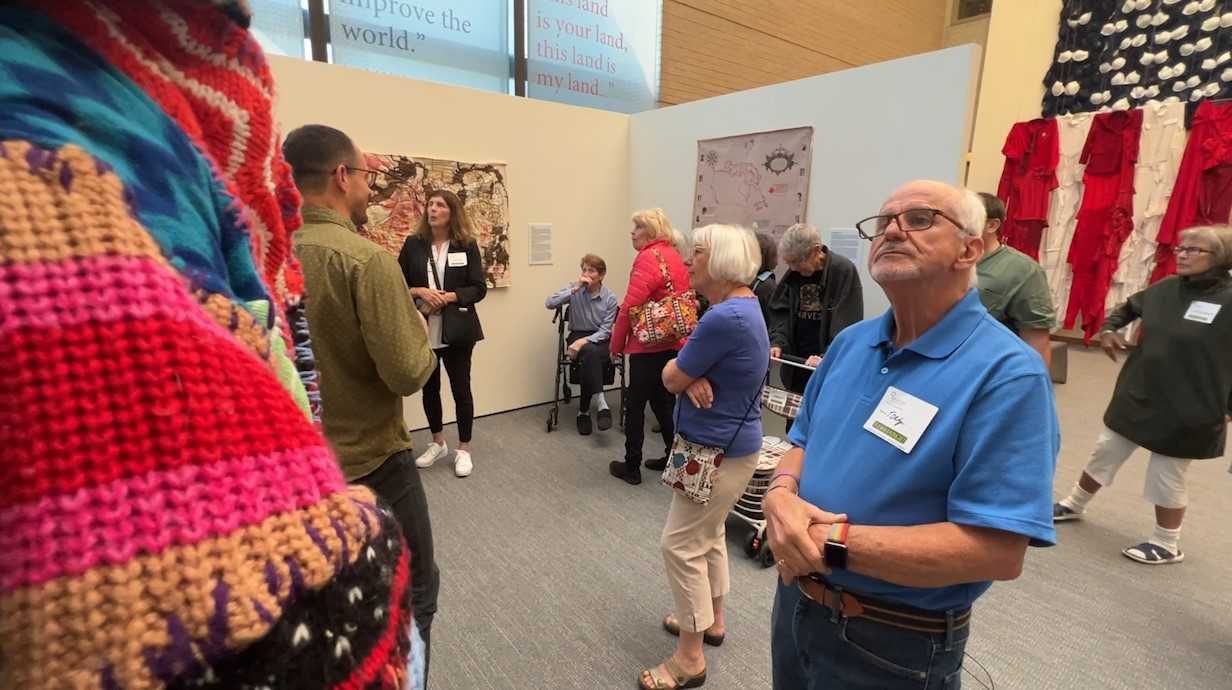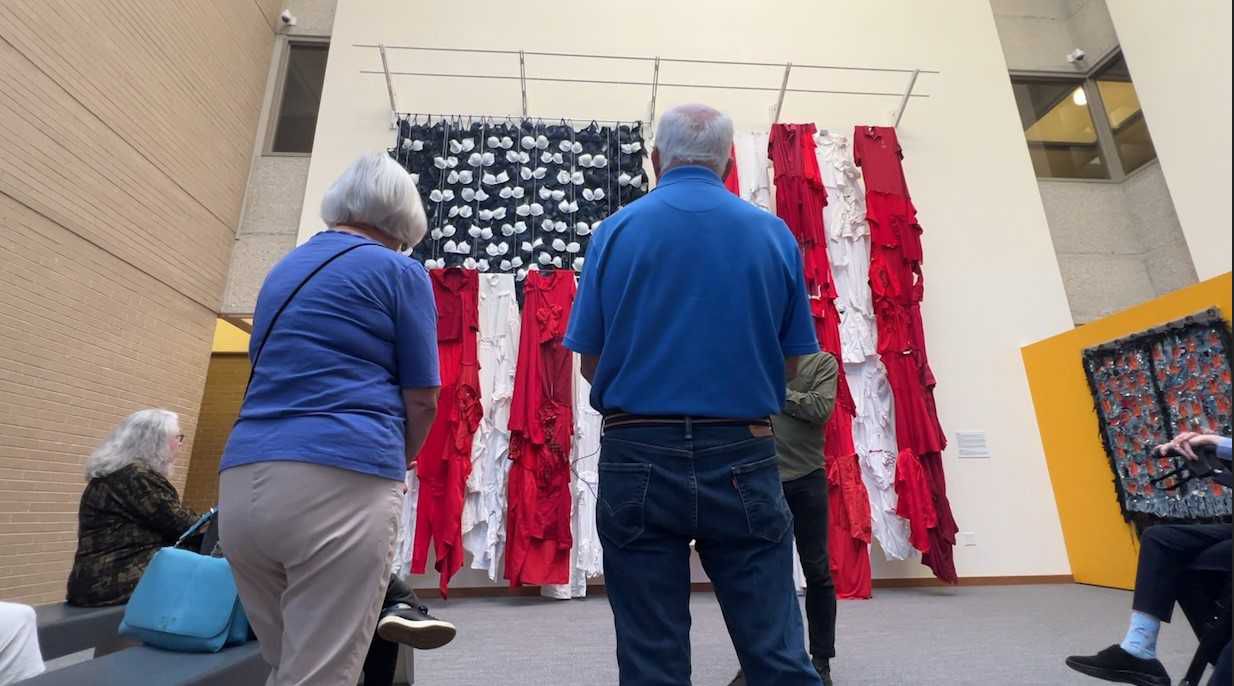MILWAUKEE — Wisconsin is home to a special arts and culture program for people with early to mid-stage memory loss and their partners or caregivers.
It’s called Spark! The program is put on through Ovation Communities. Its main goal is to stimulate conversation and inspire creativity and critical thinking through art workshops and programs. The programming is designed for people diagnosed with varying degrees of memory loss, including dementia and Alzheimer’s patients.
What You Need To Know
- Spark! program helps those living with memory loss
- “It is the kind of program that I wish was more prominent everywhere,” Haumschild said
- Tony Cutraro spent eight years visiting the Jewish Museum Milwaukee once a month with his wife, Patti, as part of Spark!
Tony Cutraro spent eight years visiting the Jewish Museum Milwaukee once a month with his wife, Patti, as a part of Spark!
“This actually gets you out into the community, and this made us feel like we were still active,” Tony Cutraro said.
Patti Cutraro had dementia. Sadly, she passed away a few months ago. However, Tony Cutraro said he still comes to Spark! events because of the supportive community he met through the program.
“I’m so appreciative of what it meant to our quality of life, and our enjoyment of life that we had,” he said. “So, I wanted to give some of that back.”

He now volunteers his time to help others in the program. Not only do they visit museums, but they also create art themselves. They meet once a month in person and do virtual lessons in between.
Dan Haumschild is the director of education at Jewish Museum Milwaukee. He said it’s really impactful to see the difference a program like this can make on the lives of caregivers, and those living with memory loss.
“It is the kind of program that I wish was more prominent everywhere,” Haumschild said. “It’s just an incredible opportunity, not only to serve that particular community but also to be benefitted by their presence.”

The families who participate can relate to each other about the difficulties of each diagnosis. They can also share in moments of joy together.
“You’re looking for guidance, you’re looking for someone to help, for someone to help guide you through the forest, and that’s where these support groups — for me, for us, for others — come in,” Tony Cutraro said.
He said remaining a part of the program is a way for him to honor his wife and continue to provide guidance to other couples facing similar challenges.



